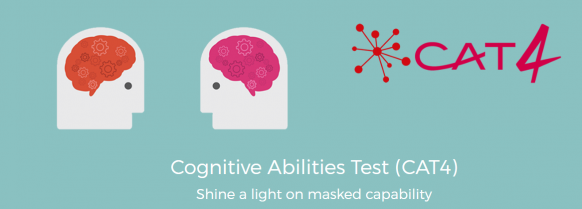Exploring how international schools are driving improvement using the CAT 4 assessment
Published by SchoolAdvisor | Mar 31, 2017The effective use of data allows schools to personalize teaching and learning. The CAT 4 assessments provide educators with objective and benchmarked data as an indicator of the ability and attainment of each. Combining this data with teachers' own observations allows them to set challenging but realistic targets and helps in delivery of effective feedback; considered by many to be one of the most powerful influences on learning.

Cognitive Abilities Test: Fourth Edition (CAT 4)
Cognitive Abilities Test: Fourth Edition (CAT 4) has been established for many years in the UK and has a dedicated international user base.
Cognitive Abilities Test: Fourth Edition (CAT 4) is a suite of diagnostic assessments of developed ability and likely academic potential. By measuring a student's ability to reason with different types of materials, CAT 4 allows educators to assess the way a student thinks and how they will learn best, and in turn, enables teachers to adapt teaching accordingly.
CAT 4 highlights students' strengths and weaknesses across four categories: Verbal, Non-Verbal, Quantitative and Spatial Reasoning. The report provide teachers with a student profile of learning preference and include a series of narratives that explain and interpret test outcomes for teachers, students, parents and other stakeholders.
READ: A fresh perspective on reading
Sample Report
 *The higher the SAS the higher the ability
*The higher the SAS the higher the ability 
 Reports also includes appropriate indicators including "most likely grade achieved" in major examinations such as the A Level and IB.
Reports also includes appropriate indicators including "most likely grade achieved" in major examinations such as the A Level and IB.
READ: The innovative use of technology in an international school classroom
Why is the CAT 4 a powerful tool of assessment?
- CAT 4 is used in more than 100 countries and many international schools across Malaysia to provide information to teachers, students and parents that with other information such as results from Key Stage 2 tests, forms the basis for discussion about how best an individual can learn and reach his or her potential in school.
- CAT 4 does not require any prior knowledge and you cannot 'learn' how to answer the questions in CAT 4. It is therefore a good test because everyone starts at the same place.
- The abilities tested in CAT 4, such as spatial ability, may be difficult to demonstrate in the classroom so it is important that teachers know the level of a student's ability in each area.
- CAT 4 results will help teachers decide about the pace of learning that is right for an individual and whether support or challenge is needed.
- CAT 4, unlike an English or maths test, is not a test of what the student has learned. It tests how an individual can think in areas that are known to make a difference to learning and achievement.
Transforming to an international education in Malaysia
Peter Wells, Principle of Taylor's International School said the CAT 4 was quite different to anything that the school had previously done. "Teachers were not familiar with this type of tool as there is no Malaysian equivalent, so the notion of an indicated grade was something of an alien concept," says Peter. "However, teachers were quick to see the advantages of bringing in a robust and accurate system. I've seen them gain confidence from the fact that CAT 4 results tend to match their own judgement so they know they are doing the right thing."

Peter Wells, Principle, Taylor's International School
"CAT 4 results are a very powerful way of tackling student engagement, especially for anyone who is flagging up as attaining less than they could be at IGCSE level. We're able to quickly address motivation if they lose direction, and get them back on board psychologically with one-to-one conversations of how much we think they can achieve."
"Previously we were uncertain about how well we were doing compared to the children's peers worldwide, so we needed a standardised assessment to see what progress we were making," says Peter. "Now we share data with parents to demonstrate how their children are doing against others learning the UK curriculum."
READ: The changing landscape of International Education in Southeast Asia
"We're often questioned by parents about how effective what we're doing is and how we can be sure we're successful. CAT 4 give us hard evidence that our teachers can do the job well, now that we are following a British curriculum. These assessments verify Taylor's International School's success and firmly place the school on an international platform".
GL Education. GL Education (known in the UK as GLAssessment) is the leading provider of benchmarking, formative and diagnostic assessments to British, bilingual and international schools in over 100 countries worldwide.

